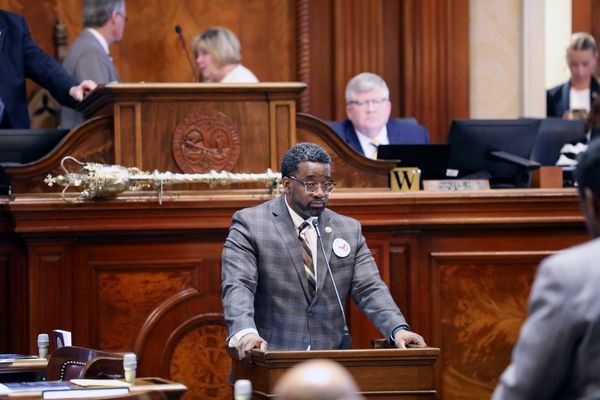Long queues of farmers at government-controlled fertiliser distribution units have become gathering points to discuss the Shivraj Singh Chouhan government’s farm policies ahead of the Assembly election in Madhya Pradesh. Farmers complain that shortage of fertilisers in cooperative retail outlets and delay in their distribution will have an impact both on the crops and on votes. The BJP, however, denied the reports of shortage and said if at all there are any issues, the district administrations will address it. The State will go to polls on November 17.
The Hindu talked to scores of farmers who were on a queue near the Pipaliya Mandi in Mandsaur. This is the same area where six farmers were killed in police firing while protesting for higher minimum support price (MSP) and for adequate quantities of fertiliser and seeds in June 2017. “I have been waiting here for two days. I need 15 bags of urea and what I will get after submitting relevant documents is two bags [each of 45 kilograms]. They won’t be sufficient,” said Ramlal, a farmer from Mandsaur.
Women and elderly people were also seen in the store waiting for their turn. “Only limited number of tokens are given that too on first come, first served basis. So I camped here overnight to be in the front of the queue. The government should have managed this better as we cannot stay away from our farms at this time. It is very crucial,” said Monu Gujjar, another farmer.
Police have been deployed in these retail outlets to control the rush. “Every such retail outlet has long queues. This is not new. We are facing this for the past few years,” said Vijay Singh, another farmer. He said he has sown wheat and chickpeas in his two-acre farmland and needs fertilisers urgently. “I need to provide fertilisers for wheat and chickpea saplings within the next seven days. If I don’t get the fertilisers, I will be forced to buy from private retailers where prices are much higher,” he added.
Kishore Patidar, a farmers’ leader associated with the Samyukt Kisan Morcha, said such long queues portray the absolute apathy of the government towards farmers. “Under the pretext of a slow billing system and other logistical issues, the BJP government is pushing farmers towards private suppliers. Cooperatives are controlled by government and elections are not held for several years. Farmers depend on these cooperative outlets so that there is some respite in the input cost,” Mr. Patidar said.
According to farmers, private retailers charge about ₹450 for a bag of urea while the price in cooperative stores is ₹266. Similarly, nitrogen, phosphorus, and potassium fertiliser, or the NPK fertiliser, another favourite of the farmers during the ongoing rabi season, is sold for around ₹1,500 to ₹1,800 at private stores while the designated rate is ₹1,350 (for 50 kg). Di-Ammonium Phosphate is also costlier with private retailers. “The government is in connivance with the private companies,” Mr. Patidar said demanding direct transfer of subsidies.
The Centre has been maintaining that the country has adequate stocks of fertilisers for this season despite global crises such as the Ukraine-Russia war. The Union Ministry of Chemicals and Fertilizers is also monitoring the supply and availability of fertilisers on a daily basis through an integrated e-platform.
The BJP said allegations of long queues and shortage are false. BJP spokesman Hitesh Bajpai rubbished the charges. “There may be local issues which need the District Magistrate’s intervention. There is nothing to worry,” Dr. Bajpai said adding that the BJP will manage such issues after December 3, the day of announcing the results.







